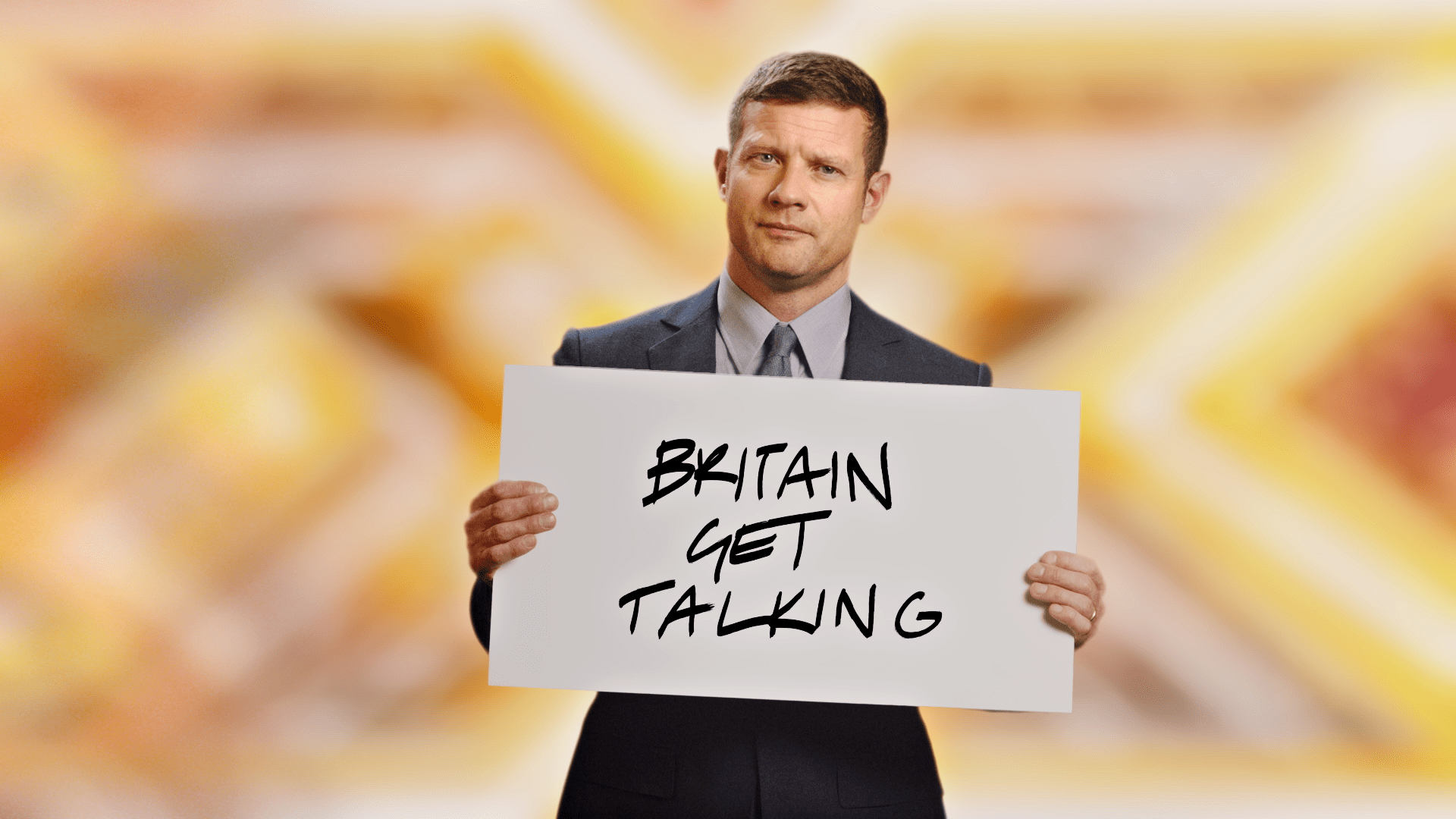In a world in which we are all increasingly becoming slaves to our screens, ITV has recently set out to counter the danger that this development poses to mental wellness.
On October 5th, presenters Ant and Dec launched ITV’s new mental wellness campaign “Britain Get Talking” by asking everyone involved in the live taping of Britain’s Got Talent: The Champions to fall silent for one full minute. They prefaced this minute of silence by claiming that anxiety and depression have risen by 48% since 2004, especially among young people. During the pause, the show’s production team held up signs backstage that read: “Use our silence to talk to each other. Try it now. Britain get talking.”
The idea behind this televised stunt is simple: talking and listening to each other can improve mental wellness, and excessive screen time prevents us from doing so. Since the launch, ITV has continued to spread the message of their campaign via silent ad breaks. Drawing on the same strategy as in the launch, ITV has paired up with brands like Gillette, Oral B and Seat to provide an opportunity for family members to talk to each other instead of being glued to the screen in silence. It goes without saying that this also applies to the use of mobile devices like phones and laptops – perhaps even more so. Instead of mindlessly watching the adverts or scrolling through social media, viewers are now encouraged to fill the breaks between their evening programme with conversation.

The “Britain Get Talking” campaign is supported by Young Minds and Mind, two UK-based charities that are fighting to provide mental health support to those in need. Their involvement emphasizes the fact that mental wellbeing is still not talked about enough, especially within the family unit. According to a poll by Young Minds, 61% of young people with mental health problems are reluctant to share their concerns with those around them. This comes at a time when the diagnoses of anxiety and depression among children have increased drastically over the past few years. In their collaboration with ITV, the charities provide advice on the official campaign website that ranges from having difficult conversions with family members to supporting young people with mental health issues.
Alongside these charities, the mental wellbeing campaign is endorsed by a host of familiar faces, such as Gordon Ramsay, Dermot O’Leary and Amanda Holden, to name just a few. These past few weeks, ITV has already begun to air advertisements that feature these well-known stars, encouraging the viewers to get talking.
“Britain Get Talking” is only the first initiative in ITV’s Campaign for Mental Wellness, a five-year plan in cooperation with Mind to support people in actively building mental wellbeing. The campaign is part of ITV’s social purpose strategy to encourage better mental and physical health. In a statement, CEO Carolyn McCall said, “The campaign highlights the importance of talking and listening in building mental wellness, ensuring we make looking after our mental health as much of a part of our daily lives and culture as our physical health.”
It is intriguing that a campaign of this nature was initiated by ITV, a company whose income depends on people tuning in for as long as possible. Perhaps the fact that a television network and several brands are willing to risk losing viewers (aka money) by silencing parts of their content gives an idea of the seriousness of the situation. By using moments of silence, the campaign has powerfully highlighted the real need for us to start this conversation.
Images: ITV

